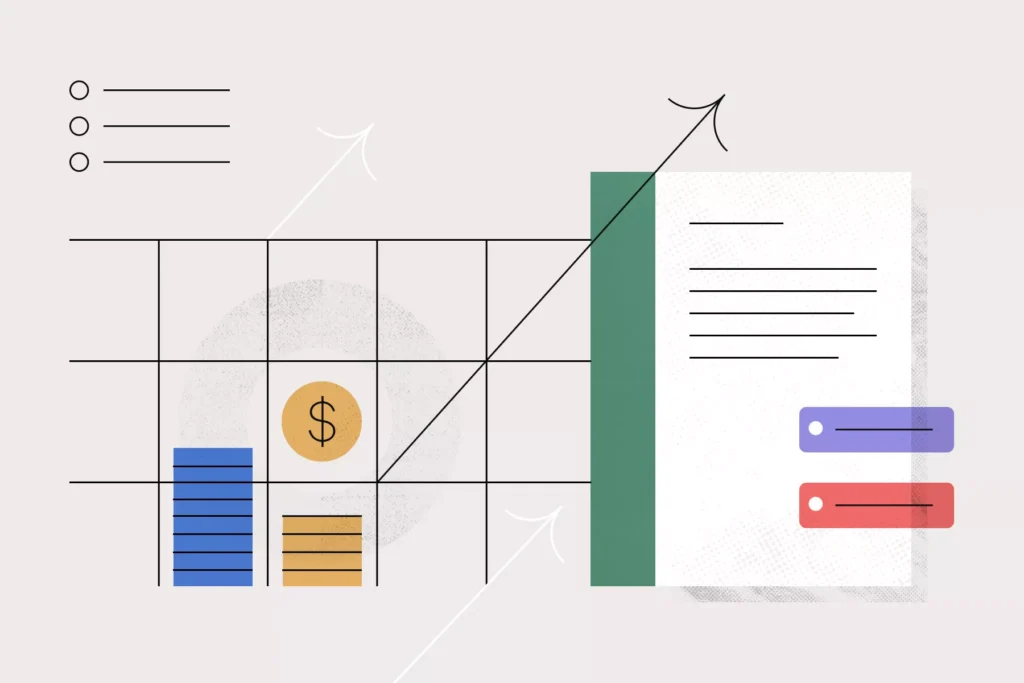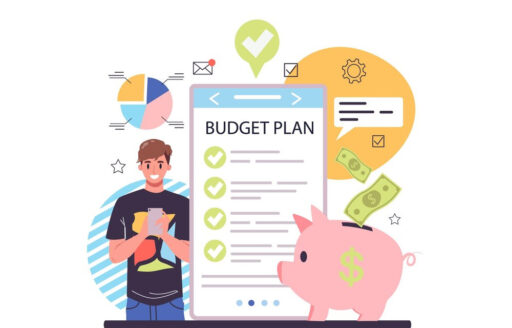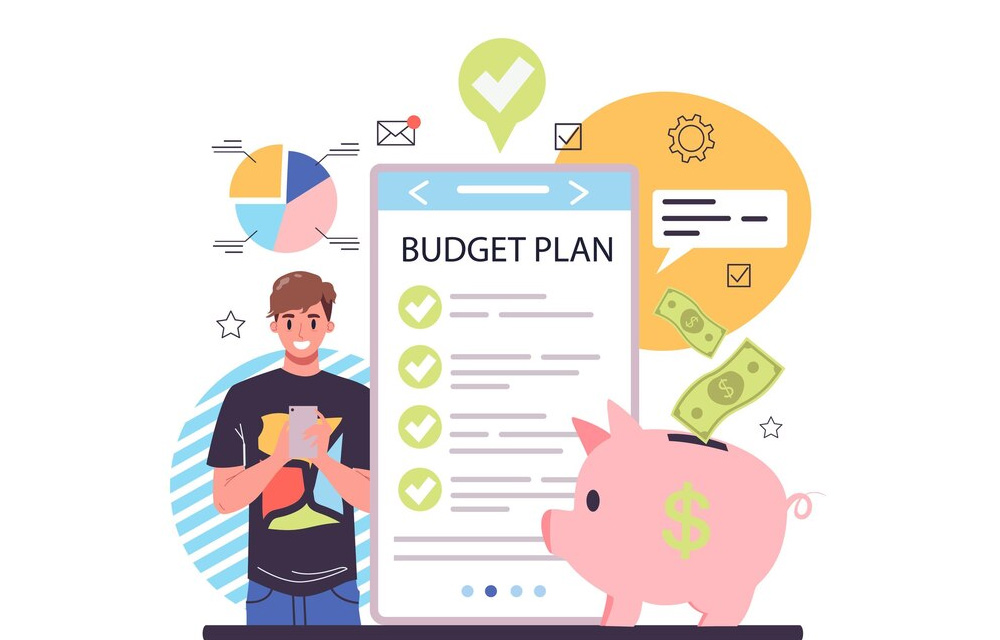Budgeting is often seen as a short-term tactic—tracking monthly expenses, limiting spending, or managing bills. However, in the grander scheme of life, budgeting plays a critical role in long-term financial planning. Whether your goals include buying a home, saving for retirement, or achieving financial independence, having a solid budget is the foundation that makes long-term planning possible. In this article, we’ll explore how budgeting aligns with long-term goals, the strategies to implement, and how to adjust your budget to changing life stages.
Understanding Budgeting and Financial Planning

What Is Budgeting?
Budgeting is the process of creating a plan for how to spend your money. It involves tracking income and expenses, setting limits for categories like housing, food, transportation, and leisure, and adjusting those limits to reflect financial priorities.
What Is Long-term Financial Planning?
Long-term financial planning focuses on setting and achieving financial goals that span years or even decades. These goals may include buying a house, paying for children’s education, saving for retirement, building investment portfolios, becoming debt-free.
The Link Between Budgeting and Long-term Goals
Without a budget, long-term financial planning is guesswork. A budget helps allocate funds toward savings, investment, and debt reduction, all of which are essential components of long-term financial health.
Why Budgeting Is Crucial for Long-term Planning
Provides Financial Clarity

A budget shows you exactly where your money is going. When you know how much you spend and save each month, you can identify areas to cut costs and reallocate funds toward long-term goals.
Encourages Consistent Saving
One of the biggest advantages of budgeting is it forces saving to become a habit. Allocating a fixed percentage of your income each month to savings or retirement accounts ensures that you’re building wealth consistently.
Prevents Unnecessary Debt
Budgeting helps manage spending and reduce dependency on credit cards or loans. By controlling your expenses, you minimize the chances of accumulating high-interest debt, which can derail long-term plans.
Helps Track Financial Progress
Through monthly or quarterly reviews, a budget allows you to measure how close you are to reaching your financial milestones, whether it’s saving $100,000 or becoming mortgage-free by age 50.
Allows for Flexibility and Adaptation
Life circumstances change—new jobs, marriages, children, or medical expenses. A solid budget can adapt to these changes while still keeping your long-term goals intact.
Components of a Budget That Support Long-Term Planning

Fixed vs. Variable Expenses
Understanding the difference between fixed and variable expenses helps you decide what can be trimmed or modified. Lowering variable costs (like dining out) frees up cash for investments or savings.
Emergency Fund
Your budget should include a line item for building an emergency fund. Having 3–6 months’ worth of expenses saved protects you from financial disruptions and keeps your long-term plans on track.
Retirement Contributions
A well-planned budget prioritizes retirement savings. Whether through a 401(k), IRA, or other retirement vehicle, consistent contributions from your budget build long-term financial security.
Debt Repayment Plan
Include a clear strategy for paying off debt. Reducing high-interest debt increases your net worth and gives you more freedom to invest in the future.
Budgeting Tools and Methods That Align With Long-term Goals
The 50/30/20 Rule
A popular budgeting method that divides your income into 50% Needs, 30% Wants, 20% Savings/Debt Repayment. This rule naturally supports long-term goals by making saving and debt reduction mandatory.
Zero-Based Budgeting
In zero-based budgeting, every dollar is assigned a job. Income minus expenses equals zero. This method ensures that no money is left unmanaged, improving financial discipline.
Envelope System
Though more traditional, the envelope method (using physical or digital envelopes for categories) helps control overspending and keeps your budget tight and aligned with long-term objectives.
How to Align Your Budget With Different Life Stages

Budgeting in Your 20s
Focus on debt repayment, building emergency savings, and beginning retirement contributions. Avoid lifestyle inflation as income increases.
Budgeting in Your 30s
Plan for major life expenses like a home or children. Increase retirement savings, create college funds if applicable, and maintain a strong emergency reserve.
Budgeting in Your 40s and 50s
Maximize retirement contributions, eliminate remaining debt, and begin planning for post-retirement life. Consider investments, estate planning, and healthcare costs.
Budgeting for Retirement
Track withdrawals and adjust spending to ensure sustainability. Monitor investment performance and adapt your budget as needed.
Common Mistakes That Undermine Long-term Planning
Neglecting to adjust your budget regularly. Underestimating future costs like healthcare or inflation. Failing to account for irregular income. Overspending in flexible categories. Not budgeting for fun, leading to burnout and failure to follow through.
How Budgeting Builds Financial Confidence
When you follow a consistent budget, you gain clarity, control, and confidence. You no longer live paycheck to paycheck. You become proactive instead of reactive. And most importantly, you start seeing real progress toward the future you envision.
Also Read : Financial Resolutions: How To Stick To Them
Conclusion
Budgeting isn’t just about managing your money day-to-day. It’s a powerful long-term financial planning tool that provides structure, promotes saving, and helps you avoid pitfalls like debt or lifestyle inflation. Whether you’re just starting your financial journey or refining it mid-life, a solid, flexible, and realistic budget is the key to unlocking a secure financial future.
Frequently Asked Questions (FAQs)
How much of my income should I save for long-term goals?
A good rule of thumb is at least 20% of your income. However, the exact amount may vary based on your goals and financial situation.
Can I still enjoy life while budgeting for long-term planning?
Absolutely. A well-structured budget includes room for enjoyment while prioritizing savings and investments.
What tools can help me stick to a budget?
Apps like Mint, YNAB (You Need A Budget), or even a simple Excel spreadsheet can be effective. The key is consistency.
How often should I review my budget?
Ideally, review your budget monthly. At a minimum, reassess quarterly or when a major life event occurs.
What if my income is unpredictable?
Create a baseline budget based on your lowest expected income, and use any extra income for savings or debt repayment.

